It’s the kind of behavior you’d expect from dogs, for whom poop is as gourmet as the finest truffles.
But when your cat, he of the refined palate and regal dining habits, starts eating his litter, you know something’s not right. After all, cats usually treat the litter box the way we treat our toilets: use it, hide the evidence and leave.
When cats eat things that aren’t food, we call it pica — a nice, succinct way of describing a potentially serious symptom. Cat litter pica can result in damage to the GI tract, intestinal blockages (especially with clumping litter) and appetite problems.
So what causes cat litter pica? Why do cats start eating cat litter, and what can you do about it?
We’re about to find out — finish that snack and read on!
Four Reasons Why Cats Eat Their Litter
1. Curiosity: Learning About Litter the Hard Way
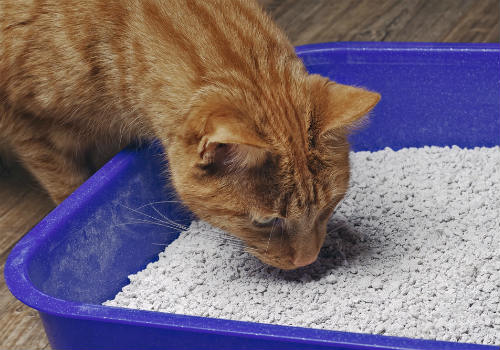
We’ll get the good news out of the way first: if your cat is still a kitten and has begun eating his own litter, it’s not likely to become a habit.
Curious kittens love investigating their surroundings. They interact with things any way they can: rubbing, swatting, sniffing and, yep, tasting.
Litter is no exception. It may be particularly enticing because kittens aren’t usually exposed to similar substances, so the novelty factor is strong.
Kittens who eat litter will quickly learn that it doesn’t taste good and doesn’t feel great once it’s in the stomach. Their first experiments with litter-eating will usually be their last.
But what if you have an adult cat who’s started eating his litter?
Well, if you’ve recently switched litter types, he may be eating it to see if it tastes as different as it looks, feels, and smells. This is especially likely if you’ve switched to a corn-based or wheat-based litter.
And if you haven’t switched brands lately, boredom could be provoking his curiosity to the point that he wants to try eating litter.
How to Stop Curiosity-Related Litter Eating
First things first: always use a non-clumping litter if you have kittens. No litter is good for them to eat, but clumping litter is especially dangerous, as it can clump in the stomach and become impossible to pass.
Monitor your kittens when they use the litter box and, if you notice them eating the litter, remove them as soon as they’re done with their business.
If your adult cat eats litter when he’s bored, you may need to switch to a less-appetizing brand and provide him with additional stimulation. New toys, extra petting, and even cat-oriented music and videos can help.
2. Nutritional Deficiency
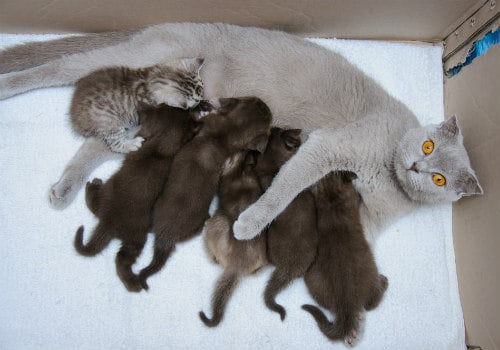
When cats are licking a vital nutrient in their diet, they’ll instinctively seek out and ingest other sources of it. And if your cat litter is clay-based, it contains many essential vitamins and minerals, making it an easy target for malnourished cats.
Vitamins A and B1 are found in clay-based litter, as are minerals like magnesium, sodium, taurine, and L-carnitine. If your cat is deficient in any of these, he may eat his litter.
Litter-eating can also be a byproduct of poop-eating, which can be caused by other nutritional deficiencies. A cat’s carnivorous diet means that his poop is filled with protein, so if he eats it, he could have worms or another condition that’s preventing him from absorbing all the protein from his food.
How to Stop Nutrition-Related Litter Eating
If you suspect that your cat is eating litter because of a vitamin or mineral deficiency, go to a vet and request that his nutrition levels be checked. Your vet will draw some blood and send it to a lab to be analyzed for deficiencies.
When the results come back, your vet will be able to advise you on how to remedy your cat’s specific deficiency. Be prepared to add supplements to his diet or change food brands to solve the problem.
3. Anemia
Anemia is a shortage of red blood cells, which results in weakness, lack of energy, weakened immune systems, and, in some cases, pica. Anemic cats will often eat their litter in addition to being lethargic, dizzy and confused.
There are many causes of anemia: recent heavy blood loss, iron or fatty acid deficiency, kidney disease, diabetes, leukemia, bone marrow disease, severe parasitic infection, poisoning and certain medications like aspirin.
Anemia caused by nutritional deficiencies could result in litter-eating as an attempt to resolve the deficiency. But it’s not clear why other conditions and diseases cause anemic cats to eat their litter.
[amazon bestseller=”cat automatic litter box”]
How to Stop Anemia-Related Litter Eating
Litter eating is the least of your problems if your cat is anemic. Anemia puts him at a greater risk of illness and injury and can be fatal if not treated.
If your cat eats his litter and also exhibits other anemia symptoms, see a vet immediately for diagnosis. The cause could be as minor as an iron deficiency or as serious as cancer, so quick action is necessary for the best prognosis.
"In ancient times cats were worshipped as gods; they have not forgotten this."
-- Terry Pratchett

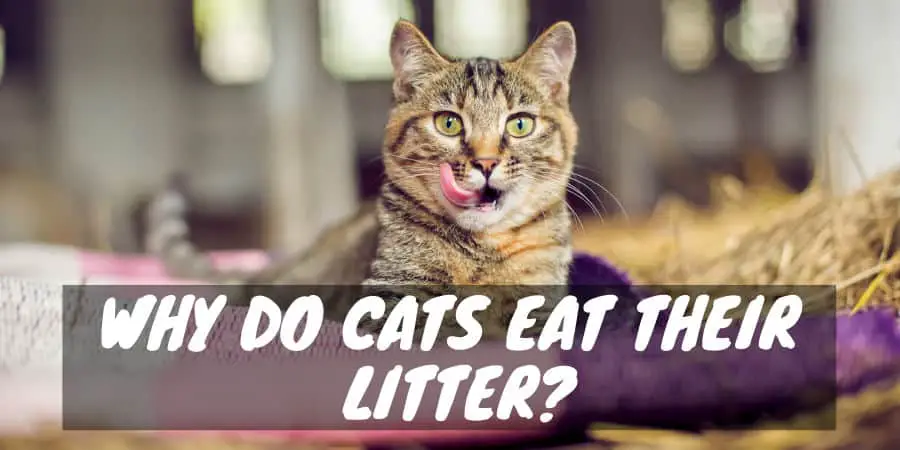
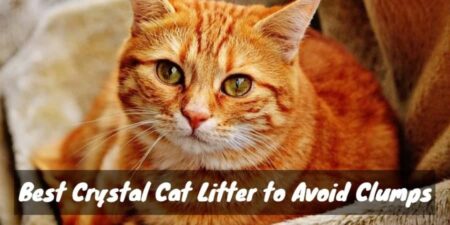
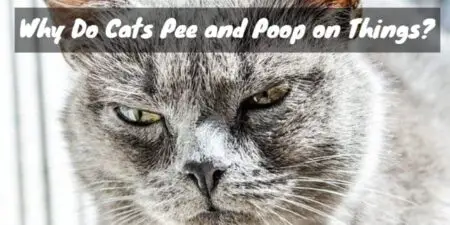
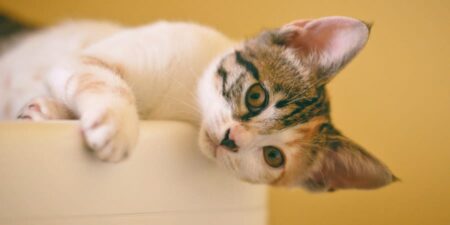
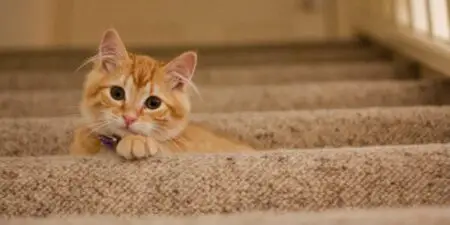
My family isn’t middle class, and we can NOT afford to get our little girl to the vet every time she needs help!
Wrong enough to punish poor families for the polarizing effects of this economy.
God help us all if we don’t help each other.